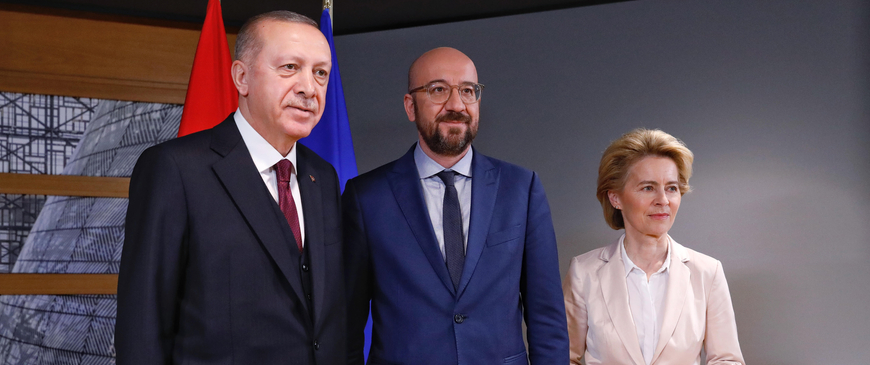
Turkey is growing more assertive on the world stage but also more isolated
"The shift towards a more assertive policy coincides with [President Recep Tayyip] Erdogan's alliance with the ultranationalist MHP [Nationalist Movement Party] since 2015 and the strengthening of his rule after the failed coup in 2016," Luigi Scazzieri, a research fellow at the Centre for European Reform, said to Euronews.
"More recently, the government has been motivated by a desire to boost support and deflect attention from a worsening economic situation in Turkey," he added.
...But while Ankara's more independent foreign policy has led to a significant cooling of diplomatic relations with Washington and Brussels, it has also failed to secure new allies."There are not many. They are very close to Qatar, Libya's GNA [UN-backed Government of National Accord], Azerbaijan. Further away and less close, Pakistan," Scazzieri said.
"The main criticism we hear very often domestically," Ulgen expanded, is that "a more assertive foreign policy has not led to a situation where Turkey has nurtured and enhanced its regional partnership.
"On the contrary, it has led to a situation where Turkey finds itself more isolated regionally."
A change of administration in Washington could lead to a firmer US stance towards Ankara which "could change the dynamics in the region," Scazzieri noted.
Europe-wise, however, "there is no appetite to impose sanctions on Turkey because after all, it is a NATO member, an economic partner, and a stable country in an unstable region," he argued.
